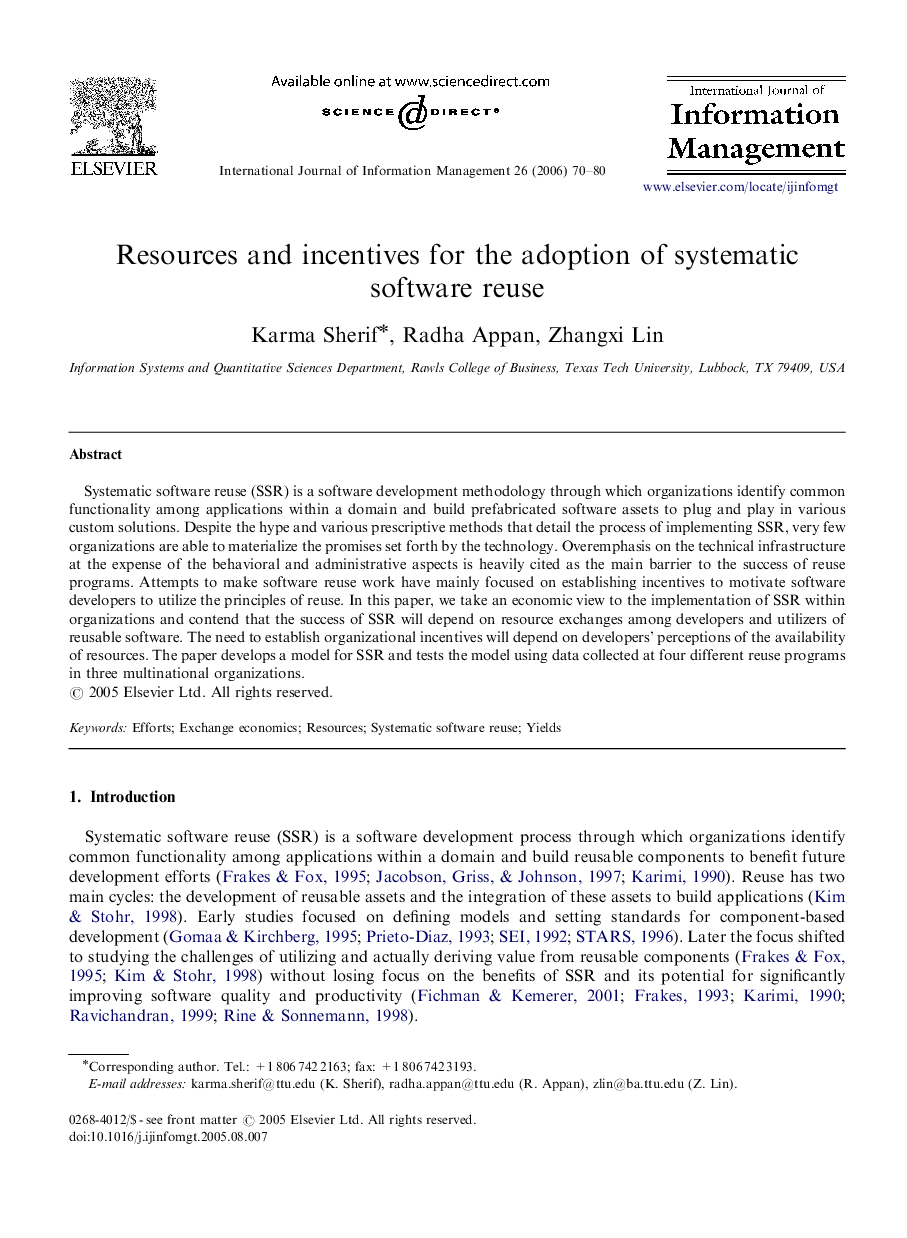| Article ID | Journal | Published Year | Pages | File Type |
|---|---|---|---|---|
| 1026359 | International Journal of Information Management | 2006 | 11 Pages |
Systematic software reuse (SSR) is a software development methodology through which organizations identify common functionality among applications within a domain and build prefabricated software assets to plug and play in various custom solutions. Despite the hype and various prescriptive methods that detail the process of implementing SSR, very few organizations are able to materialize the promises set forth by the technology. Overemphasis on the technical infrastructure at the expense of the behavioral and administrative aspects is heavily cited as the main barrier to the success of reuse programs. Attempts to make software reuse work have mainly focused on establishing incentives to motivate software developers to utilize the principles of reuse. In this paper, we take an economic view to the implementation of SSR within organizations and contend that the success of SSR will depend on resource exchanges among developers and utilizers of reusable software. The need to establish organizational incentives will depend on developers’ perceptions of the availability of resources. The paper develops a model for SSR and tests the model using data collected at four different reuse programs in three multinational organizations.
